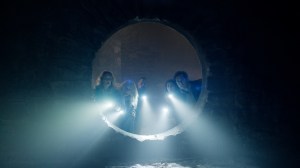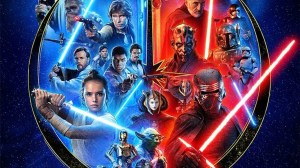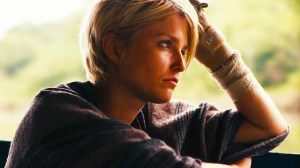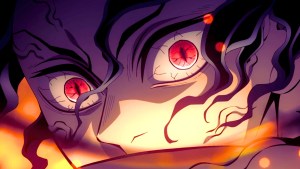A major strength of the Marvel Cinematic Universe remains its ability to endear heroes, villains, and anti-heroes to fans to the same degree. Among all of the franchise’s characters, anti-heroes arguably follow the most interesting arcs. They are deeply flawed, morally ambiguous, and prone to misdirection, but they persevere, refusing to be defined by the hardships that made them that way. The MCU’s Guardians of the Galaxy trilogy and Thunderbolts* are notably led by anti-heroes, as shared trauma, loss, and misdeeds bring both films’ main characters together in a beautifully written found family dynamic. From MCU Phase 1 to Phase 5, anti-heroes permeate the comic book franchise’s best narratives, bringing a much-needed air of complexity to the superhero genre.
Videos by ComicBook.com
Ranked from worst to best, the following 10 MCU characters are the franchise’s most fascinating anti-heroes.
10) Ghost
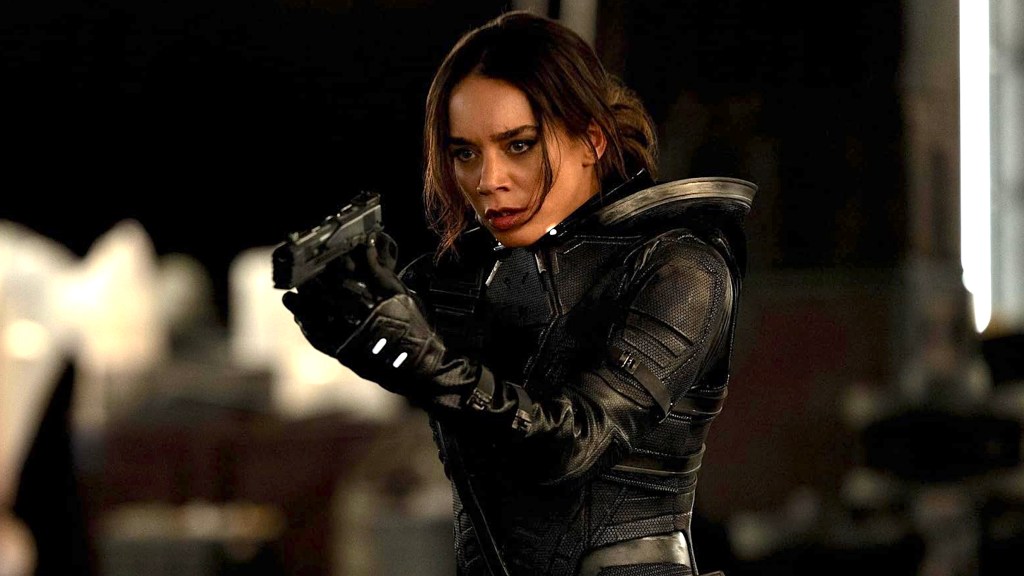
Ava Starr/Ghost (Hannah John-Kamen) stands as one of the coolest and most underrated anti-heroes in the MCU. First appearing as the antagonist of Ant-Man and the Wasp before joining the titular team in Thunderbolts*, Ava has the ability to turn herself invisible and intangible due to absorbing a large amount of quantum energy in the accident that killed her parents as a child. Ava worked as an operative for S.H.I.E.L.D and began to suffer from a lack of quantum energy, leading to her clash with Hank Pym (Michael Douglas) and Scott Lang/Ant-Man (Paul Rudd), and Hope van Dyne/Wasp (Evangeline Lilly).
Turning from a tragic villain to an unlikely hero in Thunderbolts*, Ava has followed an intriguing arc that will soon continue in Avengers: Doomsday. The character’s traumatic backstory involving the loss of her parents and a lot of pain brought on by her quantum-induced condition set her on an errant professional path, but Ava fits in perfectly with the Thunderbolts/New Avengers. Also, Ava’s unique stealth capabilities and swift combat style make her a valuable asset to her allies.
9) Moon Knight

The masked vigilante Moon Knight (Oscar Isaac), also known as the alters Marc Spector, Steven Grant, and Jake Lockley, became a fan-favorite MCU anti-hero in just one appearance. Disney+’s Moon Knight series delves into the character’s history, violent acts, and experience with dissociative identity disorder as the avatar of the Egyptian god Khonshu (F. Murray Abraham). Moon Knight’s skill with a variety of weapons makes him a thrill to watch in combat sequences. Additionally, the switching between his white armor and dapper Mr. Knight suit nicely represents Marc and Steven’s personalities.
Yet, it’s the character beneath the mask that makes him so interesting. Moon Knight functions as an intricate character study, addressing themes of childhood trauma and mental health. Marc and Steven’s reconciliation with their past and their effort to protect each other in Moon Knight’s story produce some powerful and emotional moments. Isaac delivers an all-time MCU performance in the role, and hopefully, he gets the chance to bring Moon Knight back to the screen in the future.
8) Gamora

The adopted daughter of Thanos (Josh Brolin), Gamora (Zoe Saldaña) joins the titular band of misfits in Guardians of the Galaxy. Prior to her team-up with Peter Quill/Star-Lord (Chris Pratt) and friends, Gamora operated as a lethal assassin for Thanos, who had previously wiped out half of her home planet, before betraying him and joining the Guardians. Gamora’s MCU arc was cut short in Avengers: Infinity War when Thanos threw her off of Vormir to obtain the Soul Stone, but she remains a powerful example of an individual discovering her place in the universe following a tragic childhood. Determined and loyal to her found family until the end, Gamora proves that she’s more than a ruthless killer. Even the time-altered version of the character in Guardians of the Galaxy Vol. 3 shows the compassion underneath Gamora’s cold-blooded exterior.
7) The Punisher

Former U.S. Marine Frank Castle/The Punisher (Jon Bernthal) returned from war in Iraq and Afghanistan only to watch the slaughter of his family on home soil. Driven by vengeance, Frank became a merciless vigilante who carries out justice as he sees fit. Bernthal’s rendition of the anti-hero first appeared in Netflix’s Daredevil and The Punisher shows before making his MCU debut in Daredevil: Born Again. Although Frank’s violent methods depicted in the aforementioned shows are far from an ideal way to fix the world’s problems, the Punisher’s commitment to standing up for those neglected by the American justice system makes him easy to root for.
Frank has a complicated relationship with Matt Murdock/Daredevil (Charlie Cox) due to their contrasting worldviews, but the two vigilantes harbor respect for one another and exist as fascinating foils in the Marvel universe. An upcoming Marvel Television special will tell the next chapter of the Punisher’s story, and fans should look forward to seeing where Frank’s shaky morals take him next.
6) Bucky Barnes
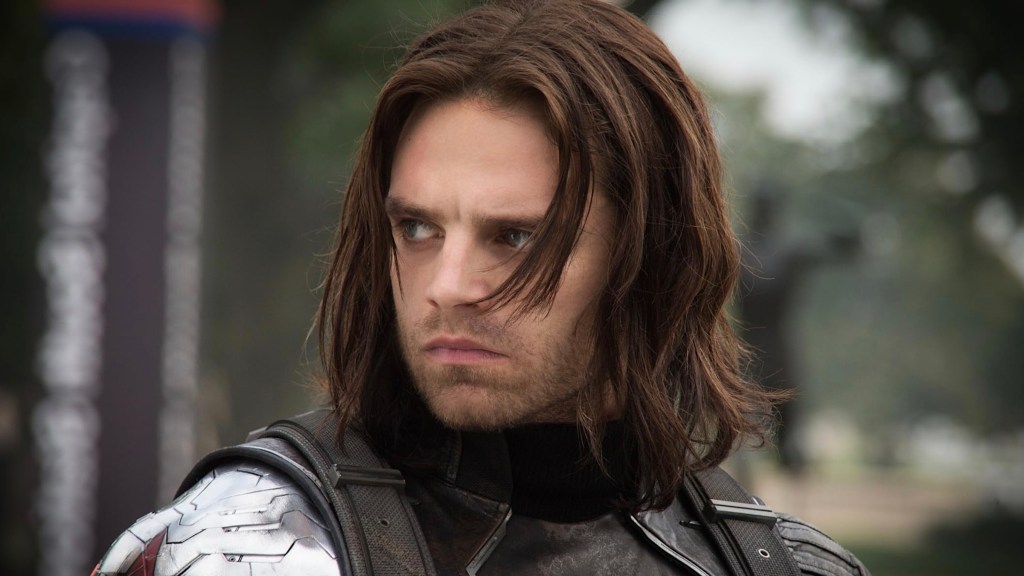
Bucky Barnes’s (Sebastian Stan) status as an anti-hero stems from his time spent as the Winter Soldier, an elite assassin brainwashed and controlled by HYDRA. A Super Soldier and World War II veteran, Bucky has left his dark days behind, reconnecting with his best friend Steve Rogers (Chris Evans) and establishing strong relationships with Sam Wilson/Captain America (Anthony Mackie), his fellow Thunderbolts members, and more. From his debut in Captain America: The First Avenger to his most recent MCU outing in Thunderbolts*, Bucky proves a model of perseverance.
Severely impacted by the violent acts he was forced to commit as the Winter Soldier, Bucky claws his way back to his true self and decides to use his superhuman abilities for good. Beyond the inner workings of his character, Bucky exudes swagger whenever he graces the screen. His highway rampage in Captain America: The Winter Soldier and motorcycle entrance in Thunderbolts* cement him as a formidable combatant that anyone would want on their side.
5) Rocket
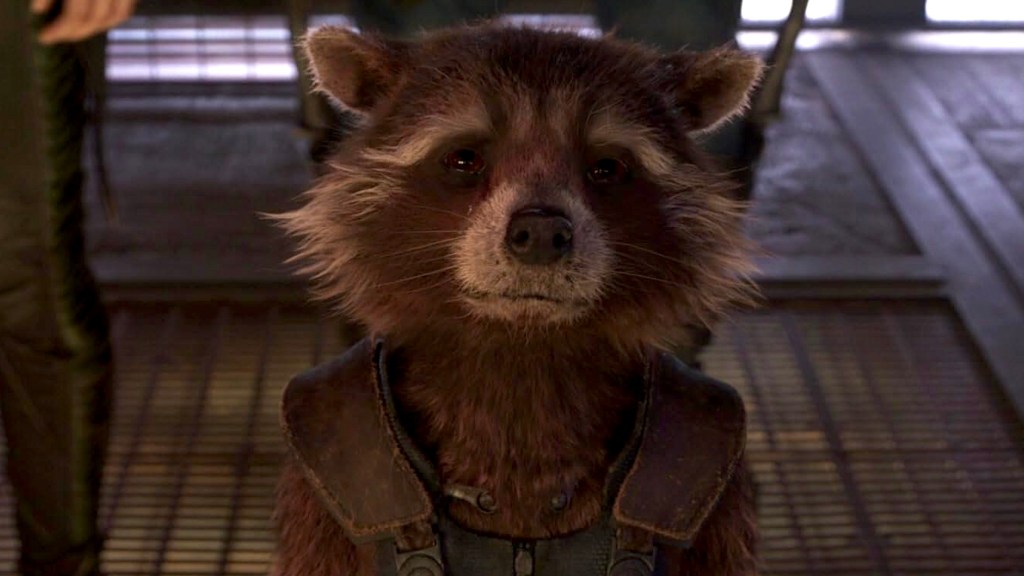
Backstories hardly get more tragic than that of Rocket (Bradley Cooper). Prior to forming the Guardians of the Galaxy, the raccoon spent his early days in the High Evolutionary’s (Chukwudi Iwuji) laboratory, where he and his animal friends were subjected to torturous experiments meant to heighten their abilities. Rocket emerged as the lone survivor of his escape attempt, subsequently leading a life of crime with Groot (Vin Diesel) before meeting Quill, Gamora, and the rest of the Guardians.
Rocket’s traumatic history factors into his aversive personality, but his time with the Guardians shows that he has a big heart. A truly lovable MCU character, Rocket is effortlessly funny, cares about his friends, and isn’t afraid of compromising morals to achieve his goals. Rocket may just be the MCU’s coolest criminal, and his arc from an innocent young raccoon to a witty, trustworthy companion and hard-nosed fighter stands out as a fantastic piece of storytelling.
[RELATED: 10 Most Sympathetic Marvel Cinematic Universe Villains]
4) Loki
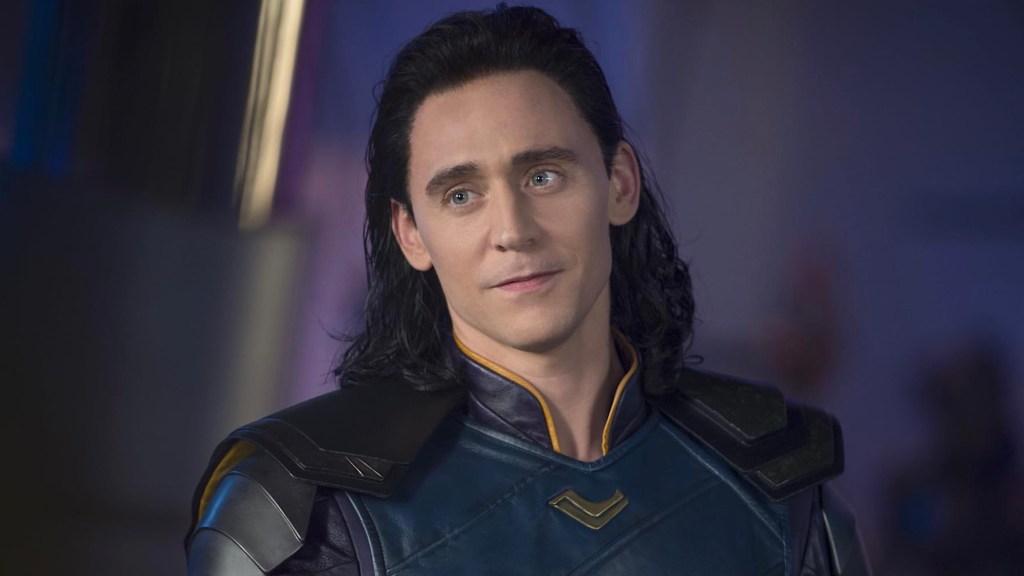
The MCU’s original version of Loki (Tom Hiddleston) remains a top-tier character in the franchise. Introduced in Thor as the adopted son of Odin (Anthony Hopkins) and brother of Thor (Chris Hemsworth), Loki initially resents and betrays his family and Asgard due to their disfavor of him. Still, the God of Mischief teams up with Thor amid the destruction of their world in Thor: Ragnarok, and Loki met his demise while bravely fighting Thanos in Avengers: Infinity War.
Loki’s MCU story is one filled with humor, heartbreak, triumph, and tragedy. He’s evil, charming, and sympathetic all at once, and Hiddleston’s performance greatly enhances the character’s complexity. Loki is so richly layered that it’s hard to decide whether to root for or against him throughout his MCU appearances. The numerous variants portrayed in the Disney+ series Loki offer a unique and captivating exploration of the anti-hero’s identity, as he fulfills his destiny as the God of Stories.
3) Nebula
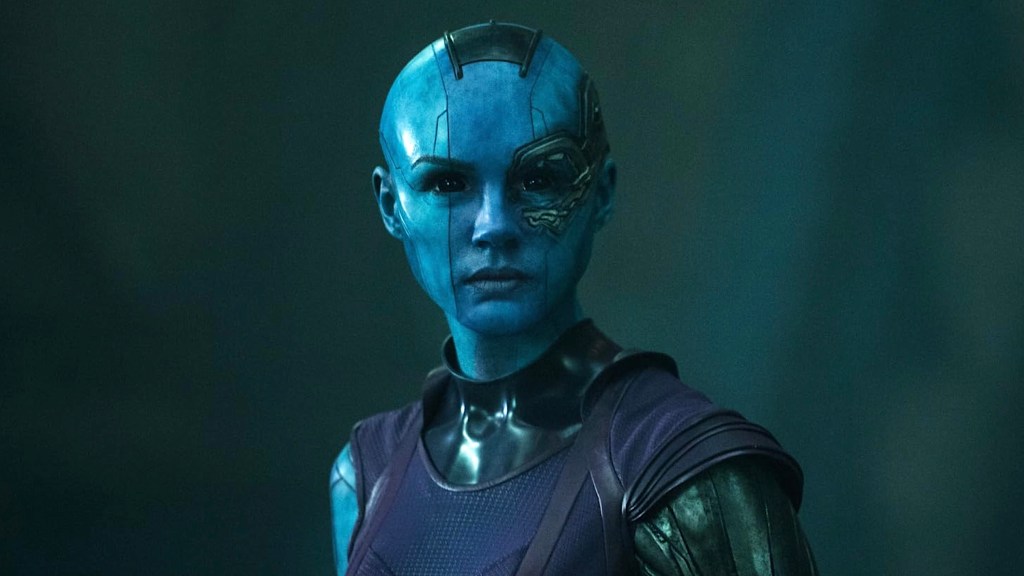
Nebula (Karen Gillan), the other adopted daughter of Thanos, was trained and used as a weapon alongside Gamora. The Mad Titan horrifically abused Nebula, forcing her to fight her sister and replacing a part of her with machinery each time she lost. Nebula begins as an antagonist in Guardians of the Galaxy and later embarks on a path of redemption, falling in with the team, rekindling her bond with Gamora, and leaving her life as an assassin behind. Although short-tempered and evidently traumatized by her rough childhood, Nebula learns to lean on her fellow Guardians for support and discovers that she can make a difference in the world.
The anti-hero’s pivotal role in the fight against Thanos in Avengers: Endgame represents the culmination of her journey, as she reckons with the past version of herself and rises up against the father she once feared. This all satisfyingly concludes at the end of Guardians of the Galaxy Vol. 3 with Nebula becoming the leader of Knowhere, promising to make it the home she never had. Nebula’s outstanding story arc is elevated by Gillan, whose performance radiates Nebula’s harshness, deep-rooted torment, and desire to overcome her morally gray history, all while seamlessly fitting in with the Guardians of the Galaxy trilogy’s humorous tone. It’s hard to identify an MCU character arc as compelling and fulfilling as Nebula’s, as her story beautifully embodies healing and growth after unimaginable suffering.
2) Yelena Belova

When it comes to MCU anti-heroes, Yelena Belova’s (Florence Pugh) arc is almost unrivaled. The younger adopted sister of Natasha Romanoff/Black Widow (Scarlett Johansson) grew up in America with a makeshift family of Russian spies and, at the age of six, was sent to General Dreykov’s (Ray Winstone) Red Room to be chemically brainwashed and trained as an assassin. Yelena’s new dawn arrives in Black Widow when a fellow widow liberates her using a counteragent. Free to live on her own terms, Yelena reconnects with Natasha and their parents, destroys Dreykov’s Red Room, and sets off to free the remaining mind-controlled assassins across the globe. A dark cloud hangs over Yelena in the wake of Natasha’s death as she leads a solitary life as a gun for hire before converging with the Thunderbolts.
Yelena’s arc in Black Widow, Hawkeye, and Thunderbolts* cements her as the perfect successor to Johansson’s Black Widow, and this time, the MCU gets the character right. Far more than a prolific killer, Yelena is a three-dimensional being whose excitement to live freely devolves into grief, depression, and loneliness. Despite the pain of her past and dissatisfaction with her place in the world, Yelena never abandons her genuine compassion for others, and by the end of Thunderbolts*, she finds a group of similar anti-heroes she can both rely on. Pugh elevates Yelena’s extraordinary character development, impeccably combining humor, anguish, viciousness, and humanity.
1) Wanda Maximoff

The MCU’s best anti-hero arc belongs to Wanda Maximoff (Elizabeth Olsen), otherwise known as the Scarlet Witch. Wanda’s tragic story begins in her childhood when the bombing of her home in Sokovia killed her parents. Since then, she suffers the loss of her twin brother Pietro (Aaron Taylor-Johnson) in Avengers: Age of Ultron and romantic partner Vision (Paul Bettany) in Avengers: Infinity War. Even after creating a false reality in which she and Vision start a family together in WandaVision, Wanda endures heartbreak when she must tear it all down to free the people of Westview. Wanda’s unprocessed trauma and grief factor into her villainous turn in Doctor Strange in the Multiverse of Madness.
Often vilified for her immense power, Wanda defies her morally gray history to become an Avenger and fulfill her destiny as the Scarlet Witch. Wanda hasn’t always made the best choices, but she continuously proves redeemable and willing to right her wrongs. Additionally, Olsen is magnetic as Wanda, authentically radiating layers of sorrow, resolve, and fury over the course of her appearances. The MCU wonderfully fleshes out Wanda as an intensely relatable anti-hero who one can’t help but support in spite of her flaws. Ranking among the franchise’s most compelling characters overall, Wanda stands out as the MCU’s most complex and fascinating anti-hero story.
Thunderbolts* is now playing in theaters.

